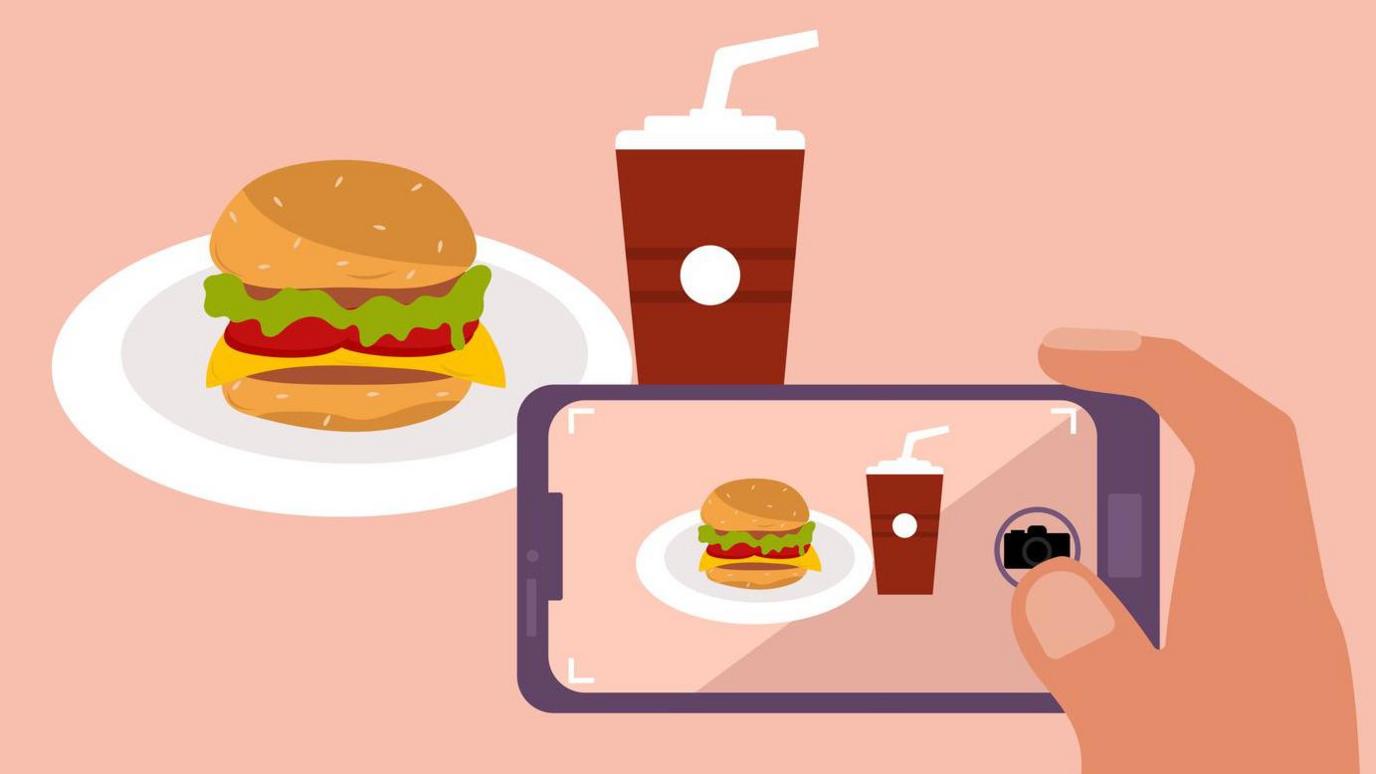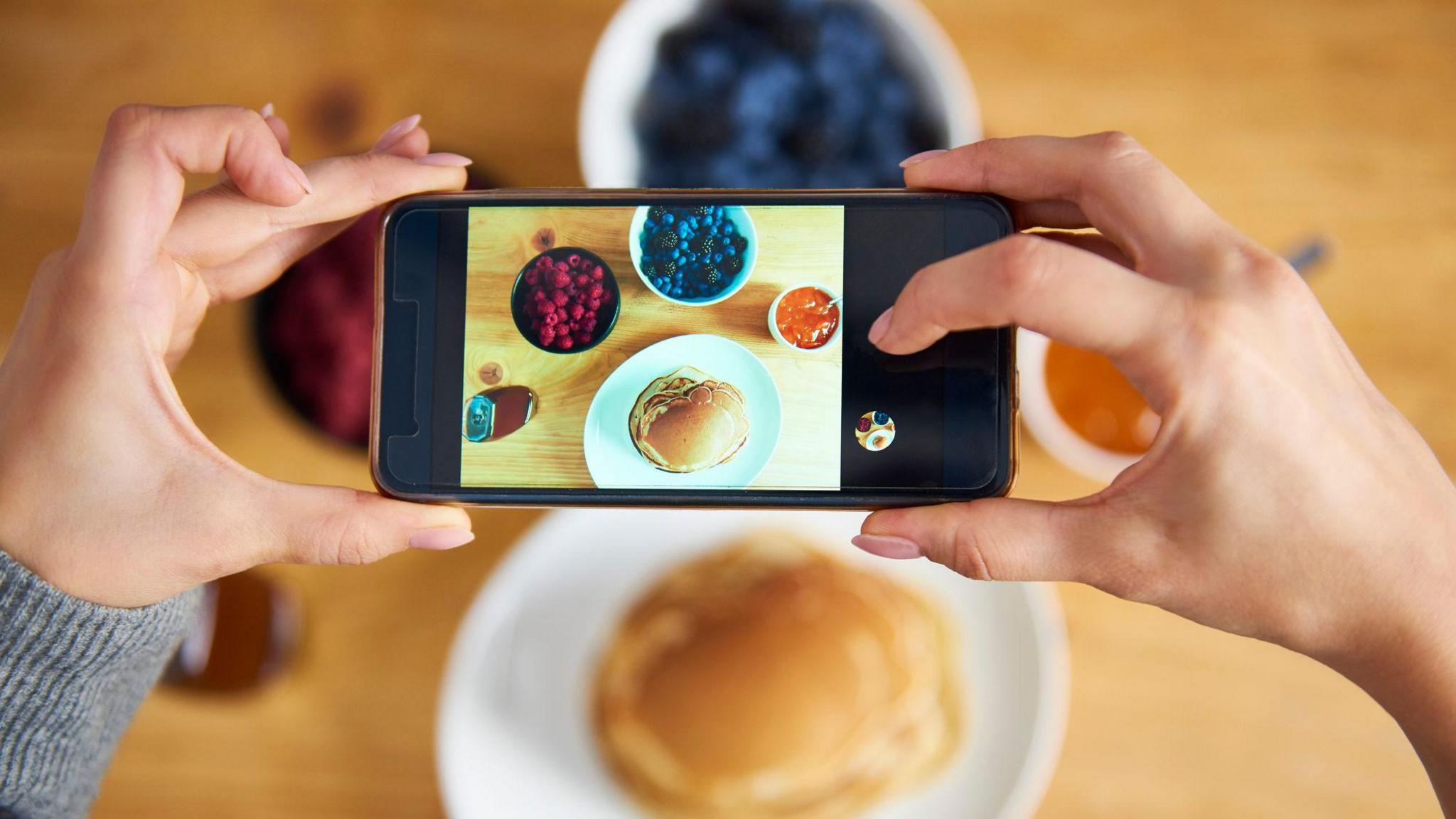Junk food flooding young people's social media feeds, says study

- Published
Scrolling through social media with the images of burgers, milkshakes and sweets can often make people hungry, but does it have a negative effect as well?
A health charity is warning that the constant stream of high fat, salt and sugar (HFSS) content is a big health concern.
A poll by Cancer Research UK suggests that children and teenagers are often exposed to unhealthy food content online, with young people interacting more with the content when it is shared by influencers.
The charity is calling on the government to do more to protect children and young people from "harmful marketing".
- Published12 September 2024
- Published11 November 2020
- Published11 March 2021
The charity surveyed more than 4,000 young people aged 11 to 21.
It found around half saw unhealthy food or drink products on social media posted by businesses or influencers in the last month.
Almost four in ten (39%) said they interacted with these posts by liking, commenting or sharing.
That number was higher for influencer content than it was for adverts from businesses.
As part of the study, 43 young people also took part in discussions around the topic and reported that seeing certain foods would make them particularly hungry.
"At least every two minutes that I'm on Instagram I'd see at least one food-related post," said one 15-year-old participant.
Another, aged 11, said:
"[There] is a giant cookie bowl that also keeps showing up," she said. "When I see it, I feel like ordering a dessert and I feel really hungry."

Food content is really popular on social media
High saturated fat, sugary and salty foods (such as cakes, biscuits, chocolate, crisps) can be eaten occasionally.
The problem is eating too much of these foods can have big health impacts.
The charity says that eating too much of these foods increases the likelihood of children becoming overweight which can lead to further health problems.
In January 2026, new laws are to be bought in by the government to ban paid-for online advertising of specific high in fat, salt and sugar products, including on social media, alongside new rules for junk food ads on TV.
Cancer Research UK says these changes have already faced delays.
"Advertising can shape what children eat, so the UK Government must help create an online environment that empowers, rather than undermines, healthy changes," Liv Cheek, prevention policy manager for the charity said.
